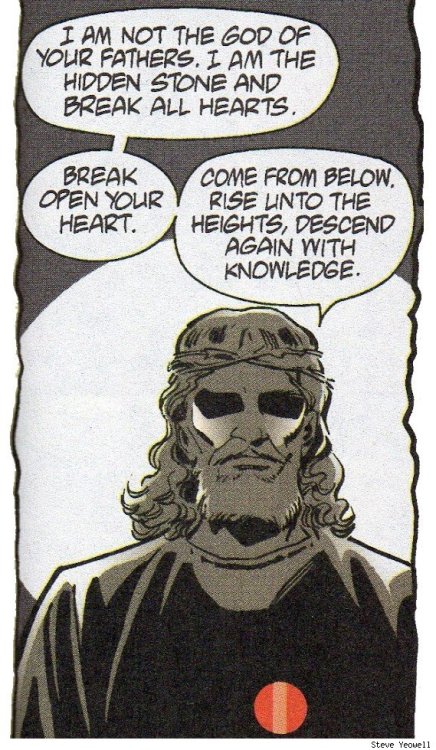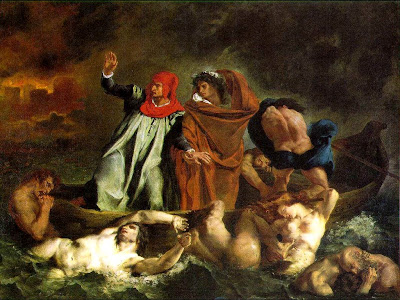Sunday, 27 January 2013
Doll
I begin as a doll, blank, mannequin, simulacrum. I look like everyone else only from a distance. I want to be more, but I don't quite know how. Soon I find a master, and I think I become more than a doll. I dress like my master, move like my master, even talk, laugh and sing like my master; for I can do such a pretty imitation of my master's voice. I take what makes my master powerful, what gives them form, and imbibe it into myself. But for all my effort, nothing has changed, but now I know no way out. I am still only a doll.
Friday, 25 January 2013
Shame the Devil
Let's get this nice and sparkling clear - "truth" and "realism" are not the same thing. Once something becomes fiction, it ceases to be reality; it's a projection of reality, filtered through a certain viewpoint. Even the grittiest, most nihilistically depressing crime drama from Arse-on-Trent has to obey the rules of drama, so a writer shouldn't bother trying to capture reality. What they should be seeking instead is truth, which is quite different.
There's a reason why people stick with fantasy (and I don't just mean elves and dwarves) beyond the need for mere escapism; good fantasy has good characters. Characters you can relate to, admire, sympathise with, or just love to hate. The Greeks understood this - their gods and heroes had very human desires and flaws, often tragically so. Marvel's particular brand of superheroes with feet of clay caught on with the public for this very reason.
Truth is what people search for. Fiction is a confusing world to navigate, so you need a character to play Virgil to the reader's Dante and guide them through this strange land. You need to ingrain them with that spark of life that makes them ring true for the reader. Doesn't matter what sort of character you're writing; they don't even need to be real. Just appear real.
There's a reason why people stick with fantasy (and I don't just mean elves and dwarves) beyond the need for mere escapism; good fantasy has good characters. Characters you can relate to, admire, sympathise with, or just love to hate. The Greeks understood this - their gods and heroes had very human desires and flaws, often tragically so. Marvel's particular brand of superheroes with feet of clay caught on with the public for this very reason.
Truth is what people search for. Fiction is a confusing world to navigate, so you need a character to play Virgil to the reader's Dante and guide them through this strange land. You need to ingrain them with that spark of life that makes them ring true for the reader. Doesn't matter what sort of character you're writing; they don't even need to be real. Just appear real.
Tell truth and shame the devil.
If thou have the power to raise him, bring him hither,
And I'll be sworn to have power to shame him hence.
- William Shakespeare.
Tuesday, 15 January 2013
The Dreams All Made Solid
 I'd never given that much thought about why I wanted to write, or how I came to be a writer. If pushed for an answer, I'd go with "Because I'm good at it". But following Monday, my usual reply doesn't seem that satisfactory. I can only compare that day's lecture to the image on the right, a scene from Grant Morrison's anarchic sci-fi saga The Invisibles.
I'd never given that much thought about why I wanted to write, or how I came to be a writer. If pushed for an answer, I'd go with "Because I'm good at it". But following Monday, my usual reply doesn't seem that satisfactory. I can only compare that day's lecture to the image on the right, a scene from Grant Morrison's anarchic sci-fi saga The Invisibles.There, the main character encounters what he perceives to be Christ who compels him to ascend to new understanding, then return to Earth to put that knowledge to use. Seems like an appropriate metaphor.
The "Eureka!" moment for me would be reading Kim Newman's Anno Dracula, which depicts what would happen if Dracula had actually made it to England. It occurred to me that Newman hadn't left this "What if?" scenario as a daydream, and that this is what it means to be any kind of storyteller. Normally I'd just have an idle thought, like "Gee, what would it be like if we lived on Mars?" The writer in me, though, would start to speak up: "Well, for starters, time would be different; a Martian day is longer than one on Earth. We'd also have to terraform it to some degree to make it more hospitable. But what about those canyons that are so long, both ends only have either day or night? Could those ever be lived in?"
And the train of thought goes on like that. That is why I write - to take dreams and ideas (immaterial things) and make them as solid and material as I can.
Subscribe to:
Posts (Atom)
